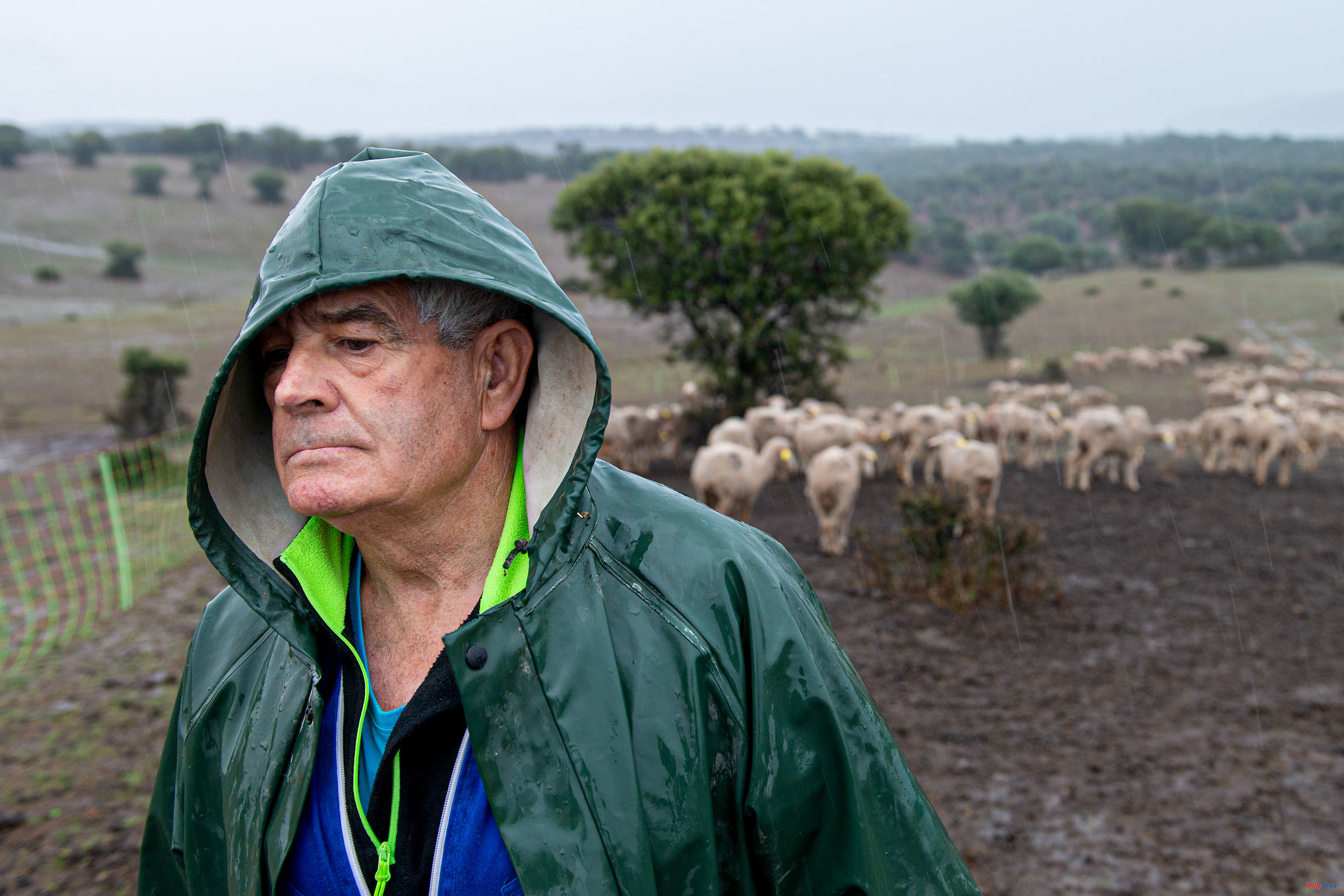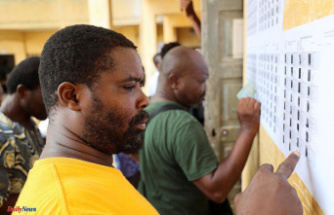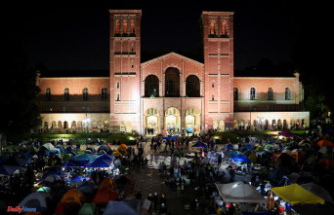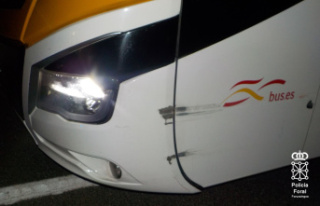One of the two remaining transhumant farmers in the province of Soria, Eduardo del Rincón, is blocked and unable to return to his flock of a thousand sheep in the Alcudía valley, specifically in the municipality of Brazatortas (Ciudad Real), due to to the mobility restrictions applied by the Junta de Castilla-La Mancha to try to control several outbreaks of sheep pox.
On the verge of a long-awaited retirement, desperate for the wait and for not being able to feed his animals with the pastures that he would now find in the Soria Highlands, Del Rincón has regretted in statements to EFE that the administrations do not give him a solution, beyond of the offer that the Ministry has made this Tuesday to pay them for the feed of their cattle, but what he wants is to leave with his cattle now.
He is confident that there will be a new mobility protocol in fifteen days to be able to return to Soria: "We do not want anything else. They do not understand the problem we have nor do they want to understand it," he lamented. In the Alcudia valley, as Del Rincón explained, ten farmers and 15,000 sheep are suffering from these restrictions, after a smallpox outbreak was detected in Cuenca in September, while he moved his animals there in November.
For this farmer, the restrictions applied "do not make sense", despite the fact that they are the ones in force at the European level and those deployed by the Ministry and the autonomous communities throughout Spain to control this type of infection and, with this, preserve the public health and also the trade itself linked to the livestock sector.
"With this disease, the animals that die die, but it is not bad for humans," the pastor said angrily, frustrated because "at the earliest" he will be able to go to Soria in fifteen days, according to the information that he has received. the Ministry, and see that they let other farmers go to Cuenca". Del Rincón explained that what worries him is the state of his sheep, which he finds "very bad" because there are no longer pastures, "only land ".
Every year, this shepherd transports his flock in trucks to the valley of La Alcudia to spend a milder summer and they return to the Soria Highlands in June, where they await them in Los Campos, in what even becomes a tourist and informative claim about the value of transhumance for centuries.
"They have closed us here. They have prohibited sales to us. I think it is manipulated. We are selling the lambs 15 or 20 euros cheaper to other markets. Here is a man who is benefiting at our expense; some are going to become multimillionaires and others of us are going to be ruined", he denounced.
Del Rincón, 66, has 50 years as a farmer behind him and had planned to retire this coming July and transfer the herd to his son, but now he thinks he will have to "undersell" the cattle and be "ruined above".
"The Administration, wherever they are from, does not get into their head that animals are like birds. They are used to migrating and they want to leave," he pointed out about the customs of his Del Rincón sheep, who he feels has " the noose around the neck" to continue surviving in this trade.
The Junta de Castilla-La Mancha has established a series of restrictions in recent months due to the appearance of several outbreaks of sheep and goat pox, the last one in mid-March in the municipality of Alcázar de San Juan, originating from a exploitation of more than 1,000 heads.
As a consequence of this, a restriction is applied to the movement of cattle in the provinces of Albacete, Ciudad Real, Cuenta and Toledo, although the succession of outbreaks of the same disease dates back to September 2022, when outbreaks were detected in eight farms in Villaescusa. from Haro. Subsequently, other outbreaks were detected in November 2022 and in January and February of this 2023.
Asked about the situation of this farmer from Soria, the spokesman for the Junta de Castilla y León, Carlos Fernández Carriedo, has made himself available to the Castilian-Manchegan government for any type of collaboration or support.
He has assumed that the origin of this situation is that the farmer moved the herd from Soria, an area free of the disease, to another that is not, something that can be done, but "the problem is in the return" from Ciudad Real: "Logically, this Community has a series of restrictions and limitations that apply to it as long as this disease can be eradicated."
"We understand that this regulation can be applied and if the Community of Castilla La Mancha needs collaboration or support, we are at your disposal," he summarized.
According to the criteria of The Trust Project












